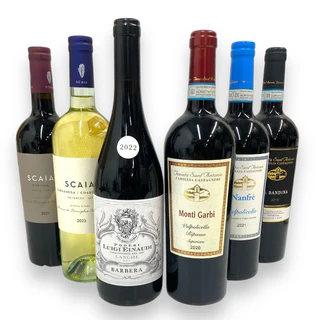Wine aficionados know that proper storage is essential to preserve the taste and aroma of a wine. Whether you are a collector or an occasional drinker, knowing how to properly store wine will help you enjoy it to the fullest. In this blog we cover everything you need to know about wine storage, from the ideal temperature and humidity to the best storage locations and tips for keeping your wine safe.
Temperature control

Temperature is one of the most critical factors in wine storage. Wine should be kept at a constant temperature, ideally between 7°C and 18°C. Temperature fluctuations can cause wine to age prematurely, affecting its flavor and aroma. Heat can also cause the wine to expand, pushing the cork out of the bottle and causing oxidation. It is therefore essential that you store your wine in a cool, dark place, away from direct sunlight and heat sources such as radiators, ovens or refrigerators.
humidity level
Another important factor in wine storage is humidity. Wine bottles should be stored in a humid environment, with a humidity level of 50 to 80 percent. If the air is too dry, the cork can dry out and shrink, allowing air to enter the bottle, which can cause oxidation and spoilage. Conversely, if the air is too humid, mold can grow on the labels and cork, leading to unpleasant flavors and aromas. It is best to store wine bottles in a wine refrigerator or cellar for optimum humidity.
Storage locations
The ideal storage place for wine is a dark, cool place, away from direct sunlight and sources of heat. A wine cellar or a wine refrigerator is the best place to store wine, as it maintains a constant temperature and humidity. Wine should also be stored horizontally so that the wine stays in contact with the cork. This keeps the cork moist and prevents air from entering the bottle. If you don't have a wine fridge or cellar, a dark cupboard or pantry is a good alternative.
Correct treatment
Proper handling is essential to preserve the taste and aroma of wine. When moving wine bottles, it is critical to handle them gently and avoid sudden movements or vibrations. Shaking can disturb the sediment, affecting the clarity and flavor of the wine. Wine should also be stored away from strong odors, such as perfumes, cleaning products or spices, which can affect the wine's aroma.
Long-term storage of wine
Wine aficionados often collect bottles for long-term storage, waiting for them to reach their full potential. Certain types of wine, such as Cabernet Sauvignon , Merlot , and Syrah , are known for their ability to age well. If you plan on storing wine for an extended period of time, it is best to invest in a temperature and humidity controlled wine fridge or cellar. In addition, certain wines require specific storage conditions, such as Vintage Port , which should be stored in a cool, dark place, away from direct sunlight, and laid flat.
Proper wine storage is essential for preserving the taste and aroma of wine. Temperature control, humidity, storage location and proper handling are all crucial factors that can affect the taste and aroma of a wine. By following these tips and investing in the right equipment, you can store and enjoy your wine for years to come. Don't forget to check out our list of wines that are perfect for long-term storage and start your wine collection today.






